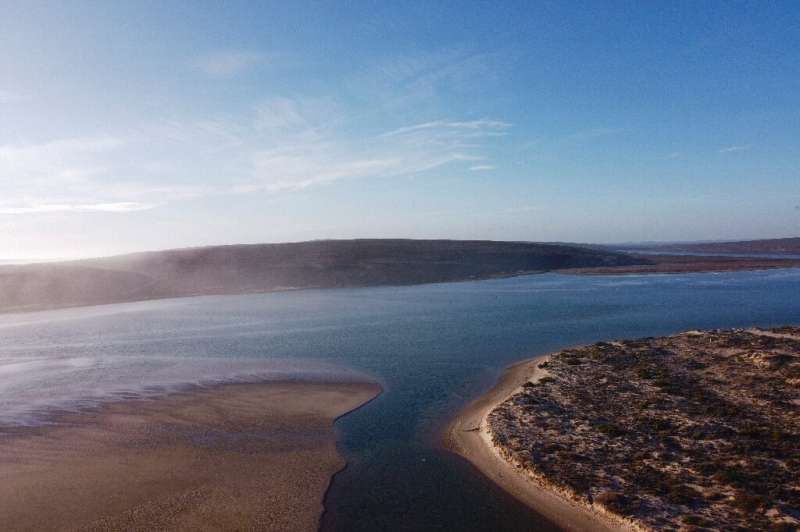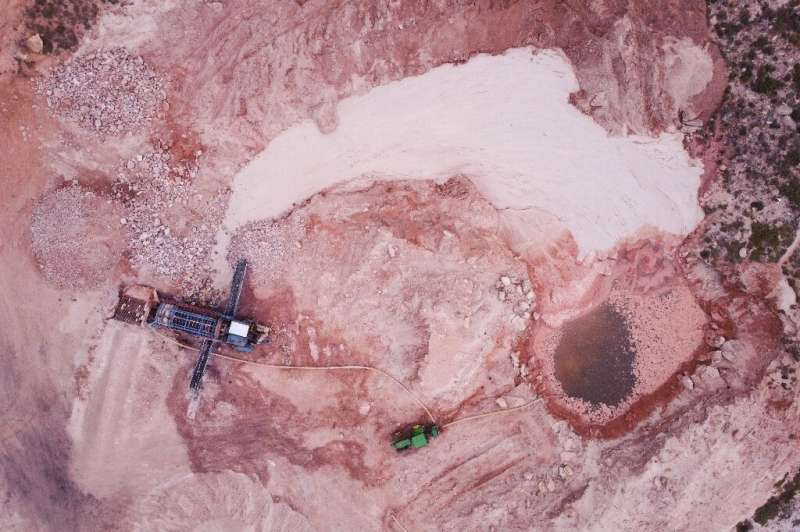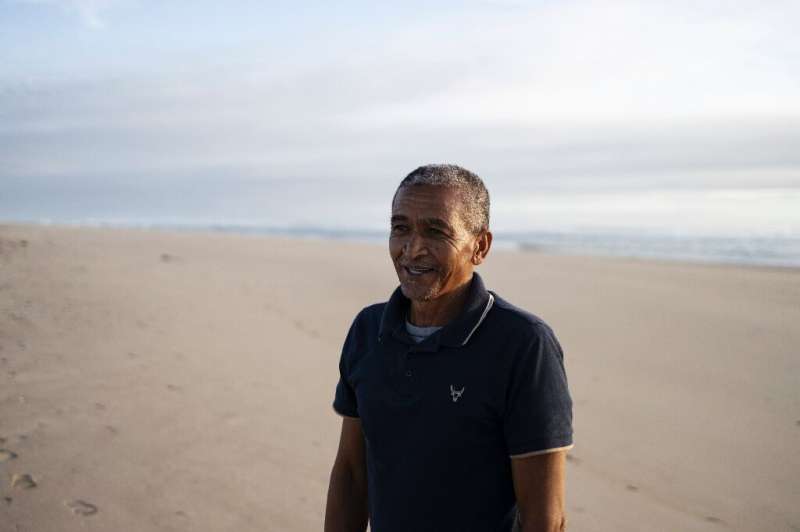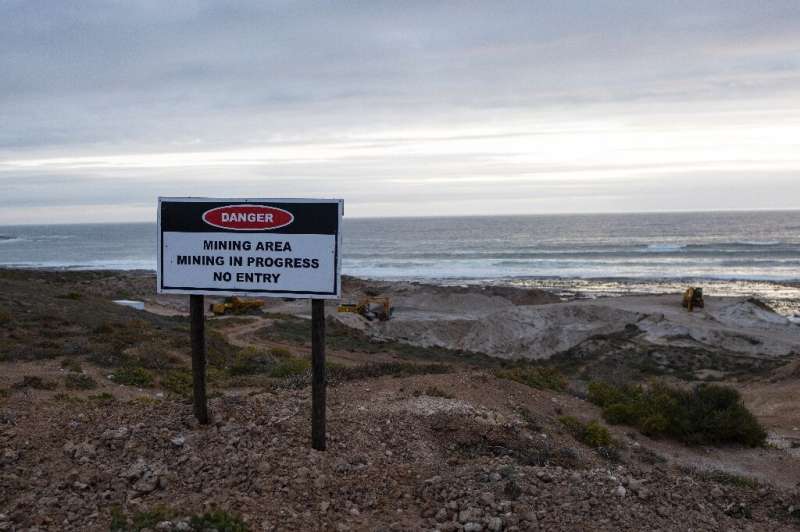Surfers, miners fight over South Africa’s white beaches

To those who live here, it’s like a little piece of heaven, boasting pink flamingos, white beaches and blue ocean waters.
Yet this stretch of South Africa’s west coast has also become a battleground, pitching mining firms against environmentalists fearful that one of nature’s last wild treasures is being bulldozed away.
Diamonds, zircon and other minerals have long been extracted in the sandy coastline near the Olifants river, which flows into the Atlantic about 300 kilometres (180 miles) north of Cape Town.
But plans to expand the mining have angered surfers, animal lovers and residents in this remote, sparsely populated region—and they are pushing back with lawsuits and petitions.
“It’s one of the last frontiers of the South African coastline where you can go and sort of lose yourself,” said surfer Mike Schlebach, 45, co-founder of a green campaign group, Protect the West Coast.
Mining companies say they bring much-needed jobs to the area and insist they abide by environmental rules.
But locals contend the excavation, in which sand is extracted from beaches and the seabed and sifted for valuable minerals, is scaring off fish and tourists alike—and shrinking rather than broadening employment opportunities.
“If we are going to have sea mining, beach mining, land mining… where is the public going to have access to the coast?” questioned Suzanne Du Plessis, 61, a local resident and campaigner.

Dolphins, seals and excavators
From off-shore diamond prospecting to the construction of a new harbour, several projects threaten to scar the area, a biodiversity hotspot home to dolphins, seals and succulent plants, according to Protect the West Coast.
Campaigners secured a small victory in June, when the operator of a mineral sand mine that had gained government approval to expand its activities to 10 more beaches, committed to additional environmental checks.
This came on the back of a lawsuit brought by the Centre of Environment Rights (CER), another environmental group, that was settled out of court by the mine operator, Australian-owned Minerals Commodities.
But activists remain wary.
“CER is entitled to go back to court should the mine not comply with the provisions of the agreement,” said CER’s lawyer Zahra Omar.
The mine has already asked for more time to put together its biodiversity management plan, she said.
Minerals Commodities legal counsel Fletcher Hancock said the company was committed to conducting its operations “in an environmentally sustainable and responsible way.”

Activists and locals feel the government has left them to fend for themselves.
Two government ministries in charge of mineral resources and environmental affairs did not respond to requests for comment.
Smaller catch
In Doringbaai, a small town a few kilometres south of the Olifants estuary, a once-pristine beach where people used to walk their dogs and enjoy the sunset to the sound of crashing waves is now being torn up by heavy machinery.
Resident Peter Owies, 54, said locals were blindsided when mining started earlier this year.
“It was quite a surprise and shock to us,” he said.
A meeting requested by the community to discuss the mining plans was never held, with the required consultation happening only online, said Du Plessis, the campaigner.
Preston Goliath, a 46-year-old fisherman, said his catch had dwindled after the mining work began and the same is true for dozens of others.

“Because they were pumping for diamonds… the fish moved away and our richest (fisheries) bank is now empty,” said Goliath.
Some residents want the beach mining to stop.
But mine owner Trans Hex said all its environmental papers are in order, adding it has held mining rights for the area since 1991.
With dozens more mining permits waiting for approval, Schlebach of Protect the West Coast said he hoped the government would rethink its strategy for the region.
“There’s a whole array of new industries that could have a profoundly positive effect on the people that live on that coastline like algae farming,” Schlebach said.
“We’ve got to show them that there’s a much better way.
Activists here are optimistic, emboldened by victories scored elsewhere by environmentalists.
On September 1, activists claimed victory in a court case against energy giant Shell—despite the government’s support of the company—resulting in the ban of seismic exploration off the touristic Indian Ocean coast.
Gold mining threatens ‘forest giraffe’ in DR Congo
© 2022 AFP
Citation:
Surfers, miners fight over South Africa’s white beaches (2022, October 19)
retrieved 19 October 2022
from https://phys.org/news/2022-10-surfers-miners-south-africa-white.html
This document is subject to copyright. Apart from any fair dealing for the purpose of private study or research, no
part may be reproduced without the written permission. The content is provided for information purposes only.
For all the latest Science News Click Here
For the latest news and updates, follow us on Google News.

